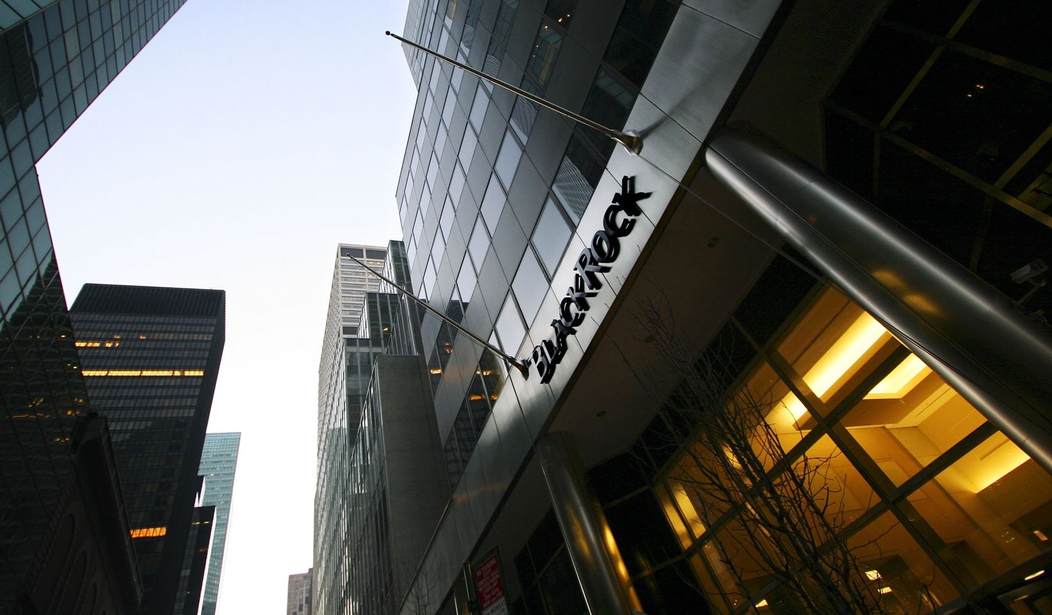Louisiana Treasurer John Schroder clearly understands the threat posed by BlackRock and its environmental, social, and governance (ESG) investment scheme.
On October 5, Schroeder penned a letter to BlackRock CEO Larry Fink, stating quite frankly, “Your blatantly anti-fossil fuel policies would destroy Louisiana’s economy.”
He added, “In my opinion, your support of ESG investing is inconsistent with the best economic interests and values of Louisiana. I cannot support an institution that would deny our state the benefit of one of its most robust assets. Simply put, we cannot be party to the crippling of our own economy.”
To prevent his state’s economy from being devastated by BlackRock’s ESG agenda, Schroeder has decided the “Louisiana Treasury will liquidate all BlackRock investments by the end of 2022.”
Specifically, Schroeder explains, “To date we have divested $560 million. We are strategically divesting over a period of time so state money is not lost to the detriment of our citizens. Once complete, this divestment will reflect $794 million no longer entangled in BlackRock money market funds, mutual funds or exchange-traded funds (ETFs) holding.”
While this may seem like a drop in the bucket considering that BlackRock is the world’s largest asset manager with more than $10 trillion under its control, it could also mark the beginning of a much larger trend.
Several other states have threatened to sever all financial ties with BlackRock due to its ESG agenda.
In August, Texas Attorney General Ken Paxton and 18 other attorneys general wrote a letter to Fink stating, “Our states will not idly stand for our pensioners’ retirements to be sacrificed for BlackRock’s climate agenda. The time has come for BlackRock to come clean on whether it actually values our states’ most valuable stakeholders, our current and future retirees, or risk losses even more significant than those caused by BlackRock’s quixotic climate agenda.”
Recommended
So, why are all of these states so concerned about BlackRock and its ESG agenda? As Schroeder argues, “Environmental, Social and Governance (ESG) investing is contrary to Louisiana law on fiduciary duties, which requires a sole focus on financial returns for the beneficiaries of state funds. Focusing on ESG’s political and social goals or placing those goals above the duty to enhance investors’ returns is unacceptable under Louisiana law.”
In other words, ESG funds are designed to prioritize arbitrary social and political objectives over and above maximizing shareholder returns, which is a blatant breach of BlackRock’s fiduciary duty to its shareholders, in this case being the people of Louisiana.
Schroeder also points out BlackRock is using ESG as a means to pad its profits with higher fees. According to Schroeder, “BlackRock applies this model to its ESG products, exploiting investor’s social conscience to extract higher fees. A recent study of U.S. fund fees referred to investors in so-called sustainable funds paying ‘greeniums’ compared to conventional funds.”
Perhaps most significantly, Schroeder highlights that BlackRock’s ESG funds perform poorly, especially when compared to non-ESG funds. “Recently Blackrock set a record for ‘the largest amount of money lost by a single firm over a six-month period’ having ‘lost $1.7 trillion of clients’ money,’ associated with ESG accounts … Such huge losses would seem to indicate that BlackRock is either not focused on investor returns or that its ESG investment strategy is flawed. Neither bodes well for investors.” Schroeder notes.
Aside from the lackluster financial returns of ESG funds and the conflict of interest they inherently present, Schroeder argues the very notion of ESG investing is antithetical to the American ethos.
According to Schroeder, “I’m convinced that ESG investing is more than bad business; it’s a threat to our founding principles: democracy, economic freedom, and individual liberty. It threatens our democracy, bypasses the ballot box and allows large investment firms to push political agendas. It threatens our economic freedom because these firms use their massive shareholdings to compel CEOs to put political motivations above a company’s profits and investors’ returns. Finally, it threatens our personal liberty because these firms are using our money to push their agendas contrary to the best interests of the people whose money they are using!”
Schroeder is spot-on; ESG is dangerous on many fronts because it is a backdoor of sorts wherein giant asset management companies that are in bed with big government can compel corporations to do its bidding, even if their goals do not align (and in many cases conflict with) with the very people whose money they are overseeing.
Chris Talgo (ctalgo@heartland.org) is senior editor at The Heartland Institute.

























Join the conversation as a VIP Member